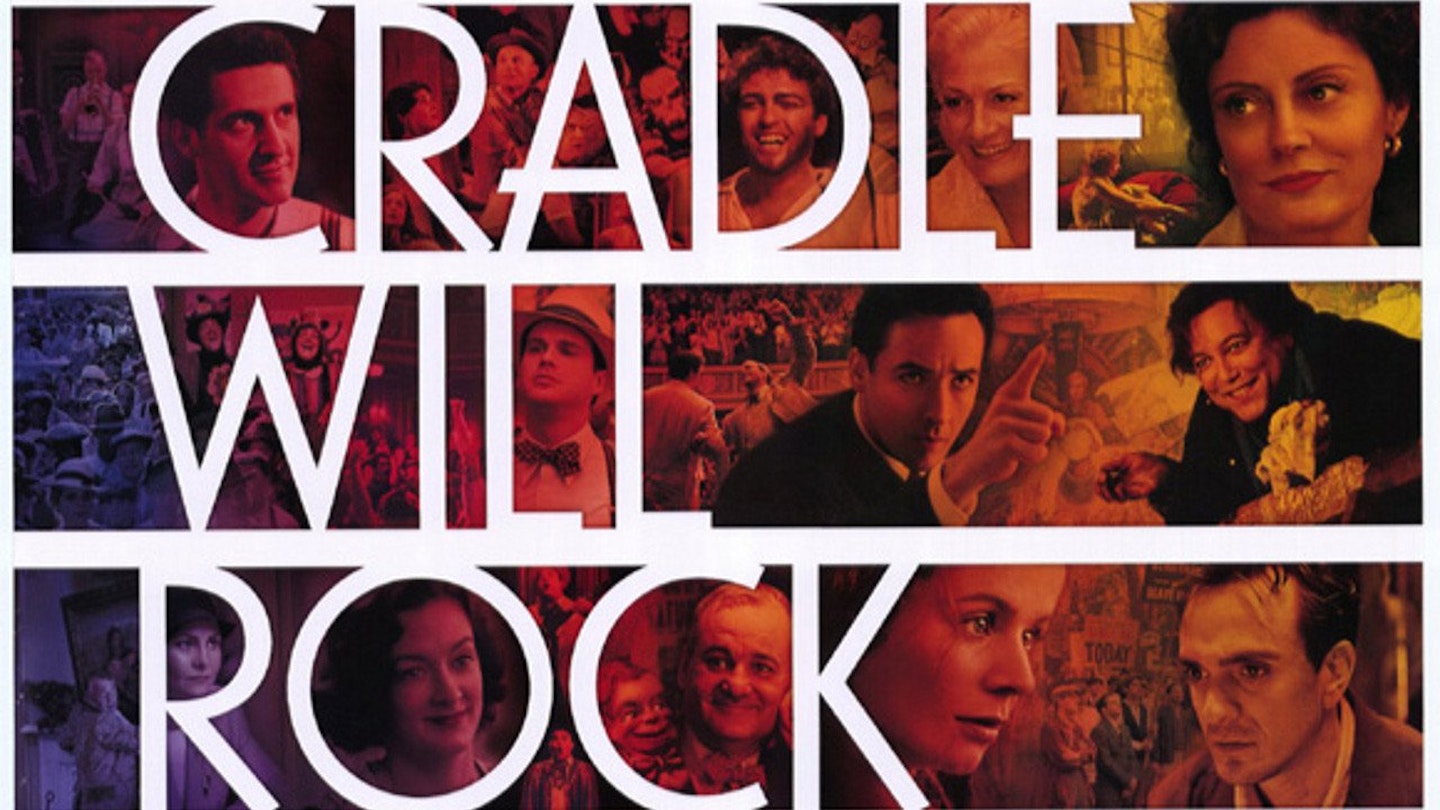Tim Robbins' third film as a director dramatises a theatre anecdote about the attempted suppression of Marc Blitzstein's socialist musical, The Cradle Will Rock, the premiere of which was directed by boy wonder Orson Welles (MacFadyen).
The story expands Altman-style to take in several other political-artistic strands from the 30s, as Nelson Rockefeller (Cusack) commissions a mural for the lobby of his skyscraper from Diego Rivera (Ruben Blades), Jewish fascist Marghareta Sarfati (Sarandon) peddles great works of art to American industrialists to get backing for Mussolini, and reactionaries mount hearings on communist influence in the publically-funded theatre as a way of attacking President Roosevelt's New Deal.
All this is there, as well as thumbnail sketches of economic desperation (Emily Watson starving on the streets), high society decadence, a steel strike that parallels the plot of the play, fantasies in which Blitzstein (Azaria) is visited by the ghostly figures of his dead wife and Bertold Brecht and a bizarre almost-love affair between washed-up ventriloquist Murray (as good here as in Rushmore) and anti-communist agitator Joan Cusack (also on top form).
Bits of it don't work - MacFadyen has the bluster of a young Welles but crucially misses the voice, scenes of Rockefeller partying with Rivera are fun but unlikely, not enough is made of the irony of a pro-union play being banned by a union, and Blitzstein's show doesn't look that hot - and you probably need to know a lot of cultural and political history to sort out what is going on.
But there's important meat here. Given the amount of actual history worked in, it's amazing Robbins has time to make things up, but there are intriguing conspiracy scenes with Philip Baker Hall, Sarandon and Vanessa Redgrave (as a Marxist Margaret Dumont), and a wonderful thread about Murray's despair at political theatre ("Reds aren't funny") that climaxes when he commits professional suicide by having his dummy sing the Internationale before an anti-commie crowd.
